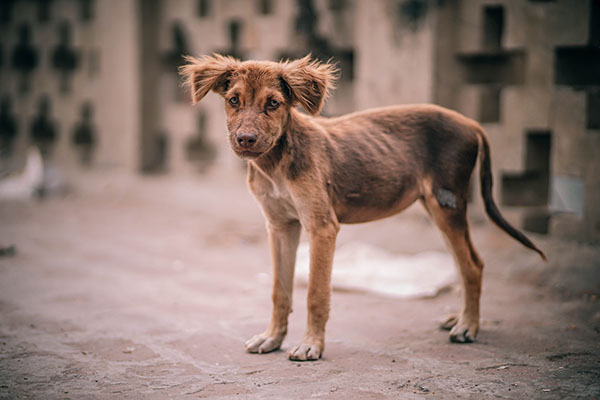Rabies
What is rabies?

Rabies is a deadly disease caused by a virus. You can get rabies if you are bitten or scratched by an animal with rabies.
In the United States, rabies is mostly found in wild animals like bats, raccoons, skunks, and foxes. However, in many other countries around the world, bites from dogs (including puppies) are the main source of rabies infections in people. Most people who die of rabies were bitten by a dog with rabies.
Rabies affects the central nervous system (the brain and spinal cord). Without appropriate medical care, rabies causes brain disease and death. Once symptoms of rabies appear, the disease is nearly always fatal. For this reason, preventing animal bites and receiving prompt medical care is especially important.
Early rabies symptoms include weakness or discomfort, fever, and headache. There may be discomfort or a prickling or itching sensation at the place of the bite. Within days, an infected person may become anxious, confused, and agitated. As a person gets sicker, they may become delirious, hallucinate, be unable to sleep, and unable to swallow or quench their thirst.
Who is at risk?

Where are you going?
Rabid dogs are a problem in many countries around the world, including most of Africa, Asia, and parts of Central and South America. Although any mammal can transmit rabies, dog bites are how most travelers get rabies.
Activities that may increase a traveler’s chances of rabies infection include:
- Camping or exploring caves (spelunkers)
- Working with animals (veterinarians, animal handlers, field biologists, or laboratory workers handling animal specimens)
- Long-term travelers and expatriates
Children are more likely to get infected because they often play with animals and may not report bites.
Rabies in dogs is rare in the United States, Australia, Canada, Japan, and most European countries.
What can travelers do to prevent rabies?
Travelers can protect themselves from rabies by taking the following steps:
Avoid animals when traveling
- Don’t touch dogs, puppies, or other animals. This goes for strays as well as pets. Not all countries require pets to be vaccinated against rabies. Even animals that appear healthy can spread rabies.
- Supervise children closely, especially around dogs and puppies, cats and kittens, and wildlife.
- If you travel with your pet, watch it closely. Do not allow it around other local pets or wild animals.
- Avoid bringing animals home to the United States. Dogs and cats may be infected with rabies but not show signs until several days or months later. If you do decide to bring an animal with you to the United States, be aware of CDC’s and USDA’s animal importation regulations.
- If you are traveling to work with animals, bring and wear appropriate protective gear.
- For more information, see Be Safe Around Animals.
Act quickly if you are bitten or scratched by a dog or other animal
- Immediately wash all bites and scratches well. Use plenty of soap and running water.
- Seek medical care immediately, even if you don’t feel sick or the wound does not look serious.
- To prevent rabies, start treatment immediately. Treatment for rabies includes getting a vaccine after you have been bitten. Even if you were vaccinated before your trip, you still need to seek care if you get bitten or scratched by an animal.
- Be prepared to travel back to the United States or to another area to receive treatment. Vaccination and medicine for rabies exposure is not available everywhere in the world.
Pre-travel rabies vaccine
For some travelers, it may make sense to get the rabies vaccine before your trip. Check if rabies vaccine is recommended for your destination.
The rabies vaccine is given in two shots. The second dose is given seven days after the first dose. Even if you are vaccinated against rabies, if you are bitten or scratched by an animal that may have rabies while traveling, you need to seek medical care immediately and get two booster doses of the vaccine.
Consider medical evacuation insurance
Rabies vaccine is not available in all countries. Medical evacuation insurance can cover the cost of transferring you home or to the nearest destination where care can be obtained. For more information, see Travel Insurance: Peace of Mind While You Travel and Travel Insurance, Travel Health Insurance & Medical Evacuation Insurance.
After Travel

If you traveled and feel sick, particularly if you have a fever, talk to a healthcare provider and tell them about your travel.
If you need medical care abroad, see Getting Health Care During Travel.
Traveler Information
Clinician Information
- Rabies in CDC Yellow Book
- Rabies Information for Doctors
- Rabies: Notifiable Disease
- Rabies Diagnosis